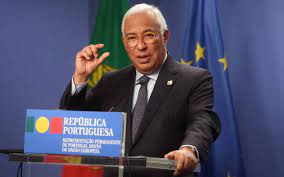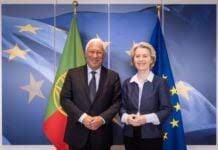Outgoing PM leaves European Council ‘proud’ of budget progress

Islamabad: Portugal’s outgoing prime minister, António Costa, said on Friday that he was leaving the European Council, after eight years, “proud” of Portugal’s budgetary progress and its political stability, highlighting the “complimentary words” he heard at this last meeting.
“No sorrow. I must confess, with some modesty, with some pride, trying to remember how it all began eight years ago, with some scepticism about whether we would be able to comply with European rules” in order to “turn the page on austerity”, said António Costa.
Speaking to Portuguese journalists in Brussels at the end of what was his last European Council, after having represented Portugal at a total of 74 summits held since the end of 2015, the prime minister recalled that after the country exited the excessive deficit procedure in 2017, it managed to end 2023 “with a positive budget balance” and already “off the podium of the three most indebted countries”.

“It’s a trajectory that the country will be able to follow calmly towards the measures that have been set and within the timetable that has been set,” he noted.
António Costa also said that he was “proud” of the fact that Portugal has been “one of the most stable countries” in political terms over the last eight years.
“Few of my colleagues remain in the (European) Council,” said the outgoing prime minister.
Alluding to the “good relations” that Portugal has had with the other member states, António Costa said that Portugal was “always part of the solution and never part of the problem”.
He also assessed the last eight years of the European Union, stressing that the EU “could have done more” and saying he hoped its voice would continue to be heard in the future.
“Europe could have done a lot more, it certainly could have done a lot more, but the truth is that we were able to manage the migration crisis in 2015, Covid-19, face the war, the energy crisis and, at the same time, we have relaunched ourselves in two transitions that are huge challenges for our societies,” the outgoing prime minister said at a press conference in Brussels.
António Costa considered that the EU will face “constant and permanent challenges”, arising, for example, from climate change, “in agriculture, in the car industry, in various sectors of activity”, and recognised that the European Union must find “mechanisms to be able to respond”.
“We haven’t achieved everything, I think the need for the Eurozone to have its own budgetary capacity was necessary and continues to be so. The truth is that in the first version of the multiannual financial framework there was no specific mechanism for the Eurozone, but there was an embryo of what could become a joint investment capacity,” he added.
“We cannot renounce the ambition we have set ourselves of achieving carbon neutrality by 2050,” he added.
Asked if he wanted to continue to be an active voice in European politics, António Costa began by joking: “I hope to overcome my hoarseness so that my voice can continue to be heard and be clear.”
Faced with the journalists’ insistence on the question, the outgoing prime minister clarified that he hopes his voice can be “heard clearly” at national and international level in the future: “Yes, everywhere, not being in opposition doesn’t mean that I’m a silent voice, I don’t have to be the voice of the opposition, it has to be my voice.”
Meanwhile, the President of the European Council, Charles Michel, said that Costa has been “very useful in trying to find common solutions” between the leaders of the European Union (EU) in the eight years he has represented Portugal at European summits.
“I’ve known António Costa for more than eight years. We have common experiences at these European Council meetings […] and he is someone who is extremely sincere in terms of his European convictions. I remember his rotating presidency [of the EU Council] in Portugal and the social summit that took place in Porto,” said Charles Michel in statements to the Lusa news agency and other European media in Brussels.
“He is also very pragmatic, concrete and functional and someone who can be very useful in team dynamics, with various personalities and various contexts, and who was always helpful in trying to find common solutions,” he added.





